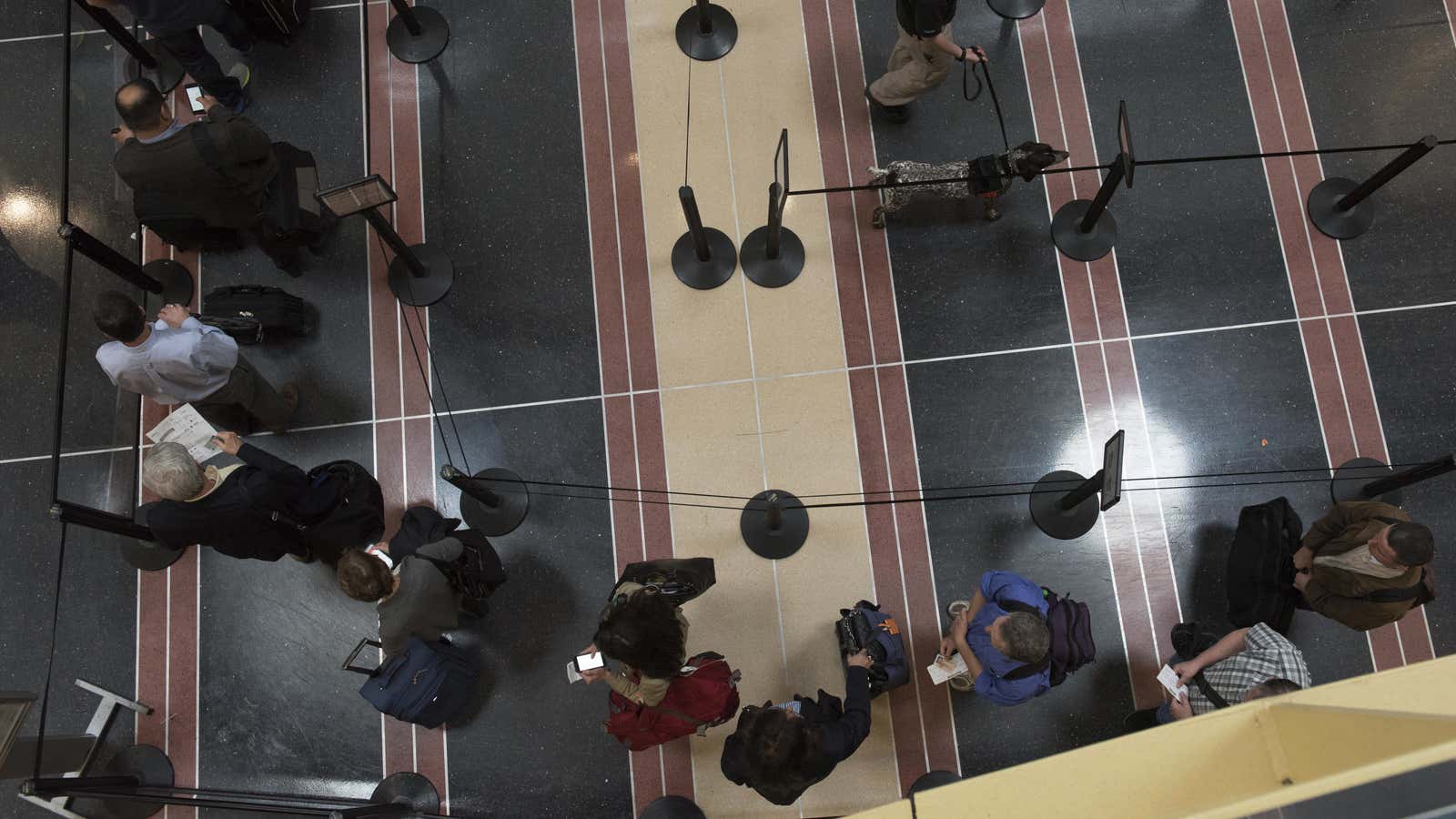The US Department of Homeland Security has asked airlines to waive checked baggage fees as a temporary solution to alleviate long lines at airport security checkpoints. That’s a billion dollar ask.
US airlines collected $3.8 billion in bag fees in 2015, according to the US Department of Transportation, with over a $1 billion of that in the third quarter, the summer travel season. With passenger volume at all time highs, this summer is likely to result again in a billion-dollar-baggage-fee quarter.
The cost to the Transportation Security Administration to add additional screeners to checkpoints is around $44,000 per screener, extrapolating from the recent announcement that 768 new screeners would cost $34 million. The TSA has 4,622 fewer screeners now than it did in 2013. So adding screeners to get back to the 2013 staffing levels would cost around $200 million.
TSA believes one reason security lines are jammed is people aren’t checking bags, and bringing them on board instead. But encouraging people to check bags by eliminating baggage fees may just shift the wait time from TSA lines to the airline check-in counters.
Some airlines are more dependent on bag fees than others. Carriers like Frontier and Spirit who primarily sell “basic” fares offering little more than a seat on the plane, charge for every next incremental service, including carry-on bags.
The airlines have no intention on acquiescing. However, if they did those fees wouldn’t be entirely eliminated because they would still charge for over-sized, heavy, and odd-shaped items. Southwest Airlines, a carrier that proudly advertises that “bags fly free” collected $43 million in bag fees in 2015.
